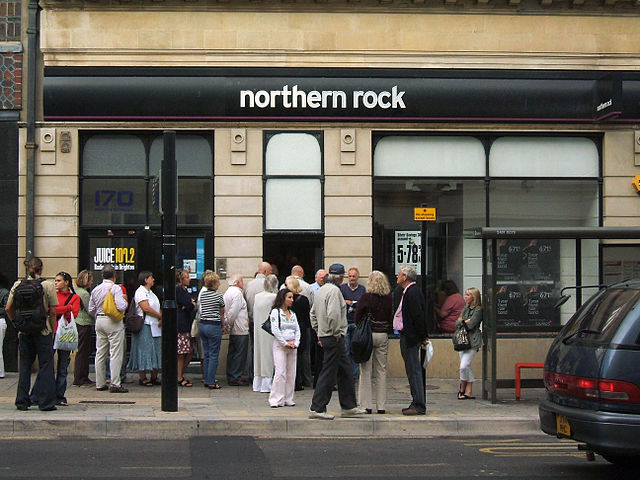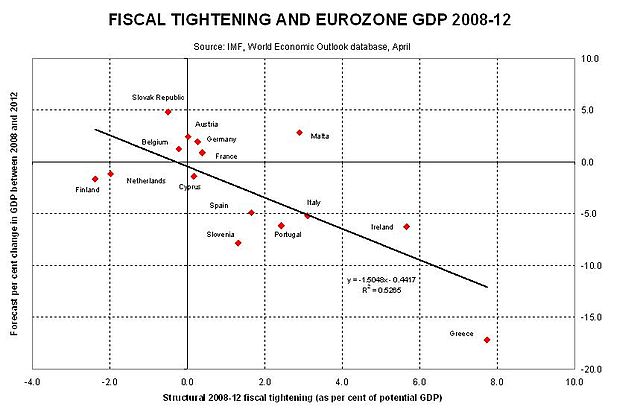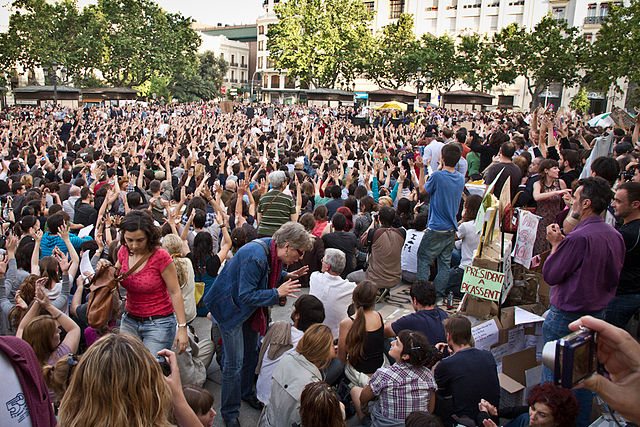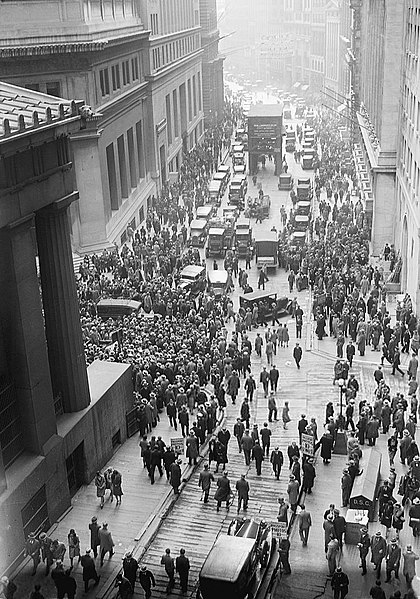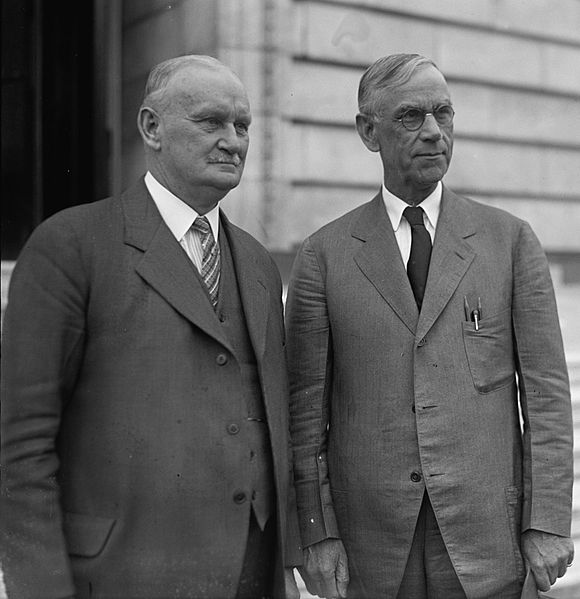The Great Recession was a period of marked general decline observed in national economies globally, i.e. a recession, that occurred in the late 2000s. The scale and timing of the recession varied from country to country. At the time, the International Monetary Fund (IMF) concluded that it was the most severe economic and financial meltdown since the Great Depression. One result was a serious disruption of normal international relations.
A bank run at a branch of the Northern Rock bank in Brighton, England, on September 14, 2007, amid speculation of problems, prior to its 2008 nationalisation
Relationship between fiscal tightening (austerity) in Eurozone countries with their GDP growth rate, 2008–2012
Sydney's financial district at night. Throughout the Great Recession, the Australian economy remained resilient and stable.
The anti-austerity movement in Spain, May 2011
The Great Depression (1929–1939) was a severe global economic downturn that affected many countries across the world. It became evident after a sharp decline in stock prices in the United States, leading to a period of economic depression. The economic contagion began around September 1929 and led to the Wall Street stock market crash of 24 October. This crisis marked the start of a prolonged period of economic hardship characterized by high unemployment rates and widespread business failures.
Unemployed men lined up outside a soup kitchen in Chicago.
Crowd gathering at the intersection of Wall Street and Broad Street after the 1929 crash
Crowds outside the Bank of United States in New York after its failure in 1931
Willis C. Hawley (left) and Reed Smoot in April 1929, shortly before the Smoot–Hawley Tariff Act passed the House of Representatives

